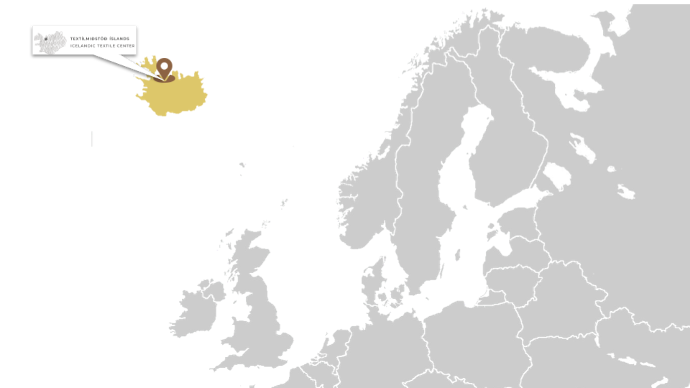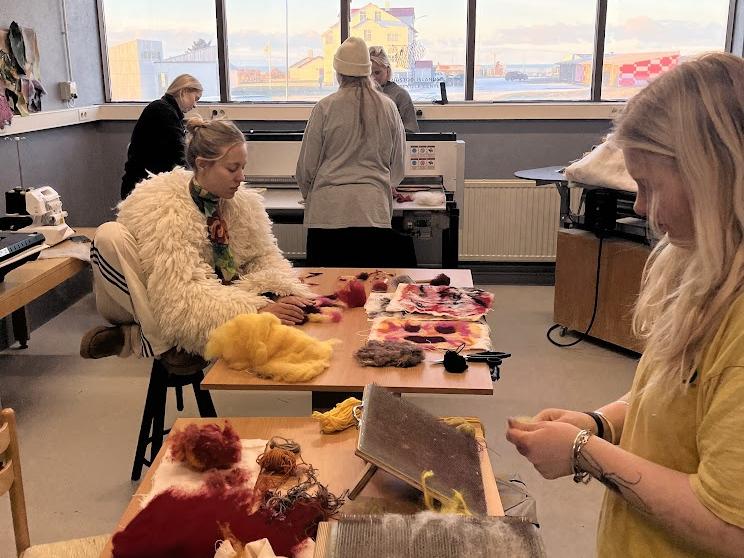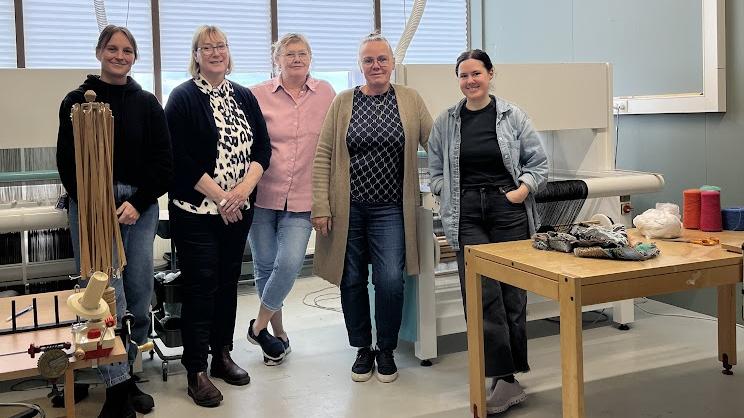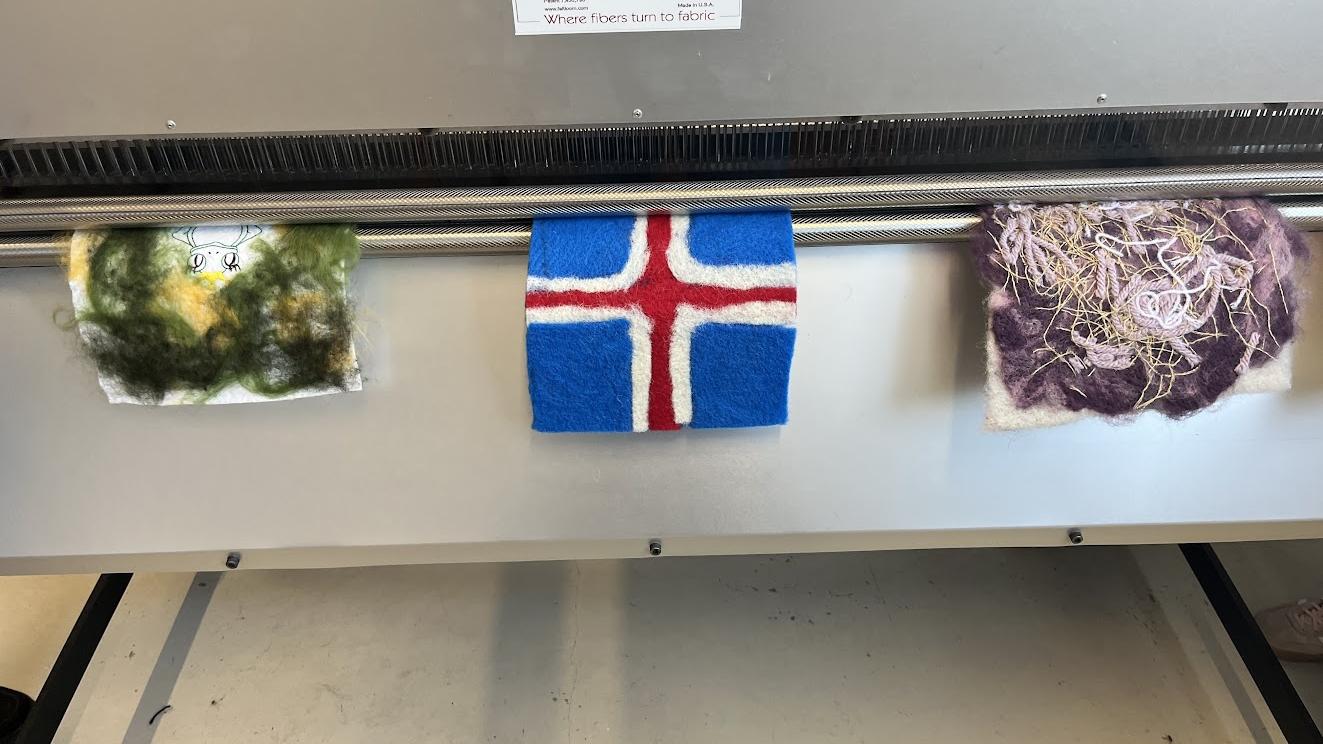Pilot 2
Icelandic Textile Center (Iceland)
About Icelandic Textile Center
The Icelandic Textile Center aims to support research, innovation and education in textiles. The region of northwest Iceland lacks diverse employment opportunities beyond sheep farming, fishing and tourism, and is characterised by youth flight and depopulation. To counteract this, the Association of Municipalities is seeking new ways for regional development and for attracting new and innovative businesses, including the many opportunities in textiles. In this context, municipalities and stakeholders are keen to further develop the Textile Center as a makerspace and educational platform. Artists at the Center have access to a dye studio and loom room and in May 2021, the Center opened the first TextileLab in Iceland, featuring state-of-the art digital equipment for textile work, including a felt and digital loom. Its makerspace is not a place for full-blown production, but for sampling, experimenting and learning, particularly with sustainable and local materials, such as wool, hemp and fish leather.
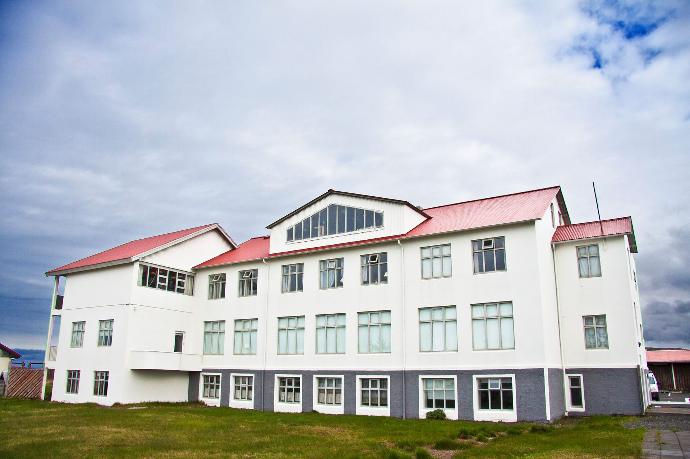
Activities
-
Develop courses and study programs within textiles in collaboration with partners in and outside of Iceland.
-
Form a textile cluster strong enough to support the Icelandic textile community.
-
Research how traditional embroidery and knitting can be further developed with digital technology.
Results
-
New formats for transmitting and certifying textile knowledge and skills in Iceland.
-
Preparations for a university degree in textiles.
-
Textile cluster, including sheep farmers, craftspeople, small businesses and educational institutions to strengthen and support the community.
-
Establishing the Textile Center and TextileLab as a destination for place-based learning and skill-sharing in Iceland.
-
Knowledge on variations in traditional embroidery and knitting using digital technologies.
Impact
-
Build a bridge from traditional handcrafts to digital textiles.
-
Create an environment where makers, artists, scholars can experiment, create, research and innovate.
-
Contribute to the development of small-scale manufacturing in Iceland
-
Create new pathways for teaching and learning about textiles
2025 TIMELINE
-
November 2025
The TextileLab team developed a series of workshops, including felting, tufting and a hybrid digital weaving workshop that combined an online introduction to the TC2 loom with an in-person, on-site weekend session.
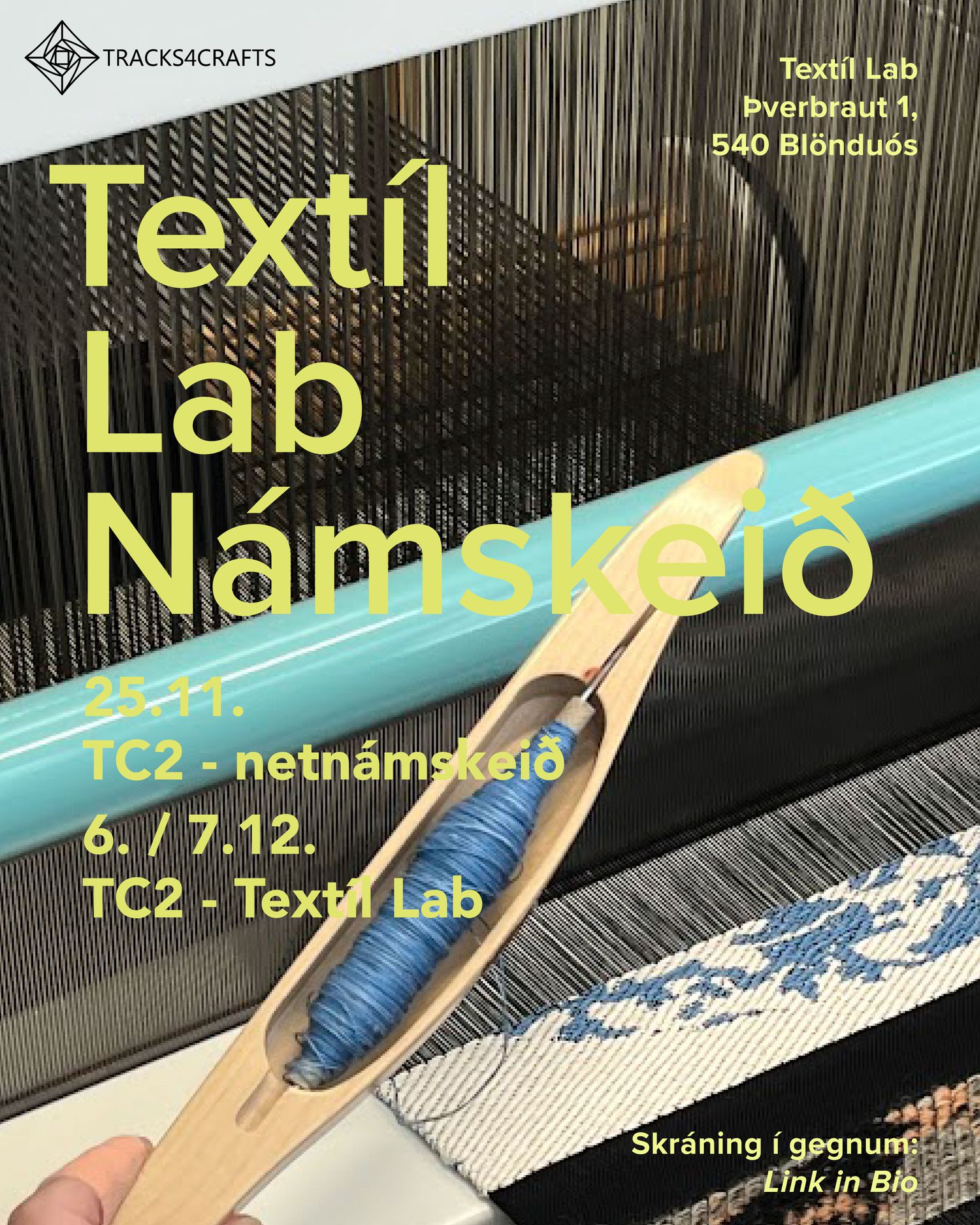
-
November 2025
In collaboration with LHÍ fashion design students, the Textile Center hosted an open, informal sewing and upcycling workshop at the Blönduós Community Center. Participants altered, improved, or created new garments from old ones. The event was valued by the local community as an opportunity to strengthen connections.
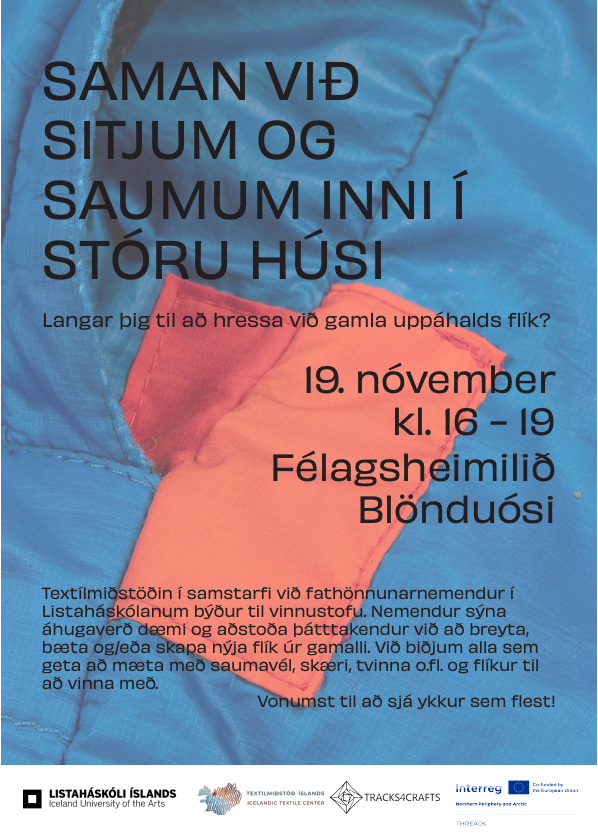
-
November 2025
Fashion design students from the Iceland University of the Arts (LHÍ) spent a week at the Textile Center to explore traditional techniques, digital equipment, and machinery. Activities included traditional and digital weaving, felting, embroidery, and visits to local textile sites. The visit enriched student learning and contributed to the Center's ongoing development.
-
October 2025
Workshops for 13–16-year-olds were held in the TextileLab, focusing on the creative reuse of textile waste. Students created fabric patches from recycled materials and wool, embroidered their own designs, toured the lab, and were introduced to the machines and their possibilities.
-
September 2025
A 3-day Digital Weaving Workshop was held in the TextileLab, where participants explored file preparation and weaving structures, building pattern libraries, and making their own digital weaving design.
-
September 2025
The TextileLab welcomed 189 members of the Icelandic Handknit Association. Participants explored the lab’s facilities and learned about new opportunities in textiles, including modern techniques, sustainable materials, and creative technological applications in fibre arts.
-
August 2025
The Annual Meeting of Icelandic Knowledge Centres took place with the Minister of Culture, Innovation, and Higher Education in attendance. The Association of Knowledge Centres supports research and higher education across Iceland and collaborates closely with the Ministry. The meeting strengthened collaboration among centres and provided an opportunity to advocate for shared priorities, including textile heritage and innovation.
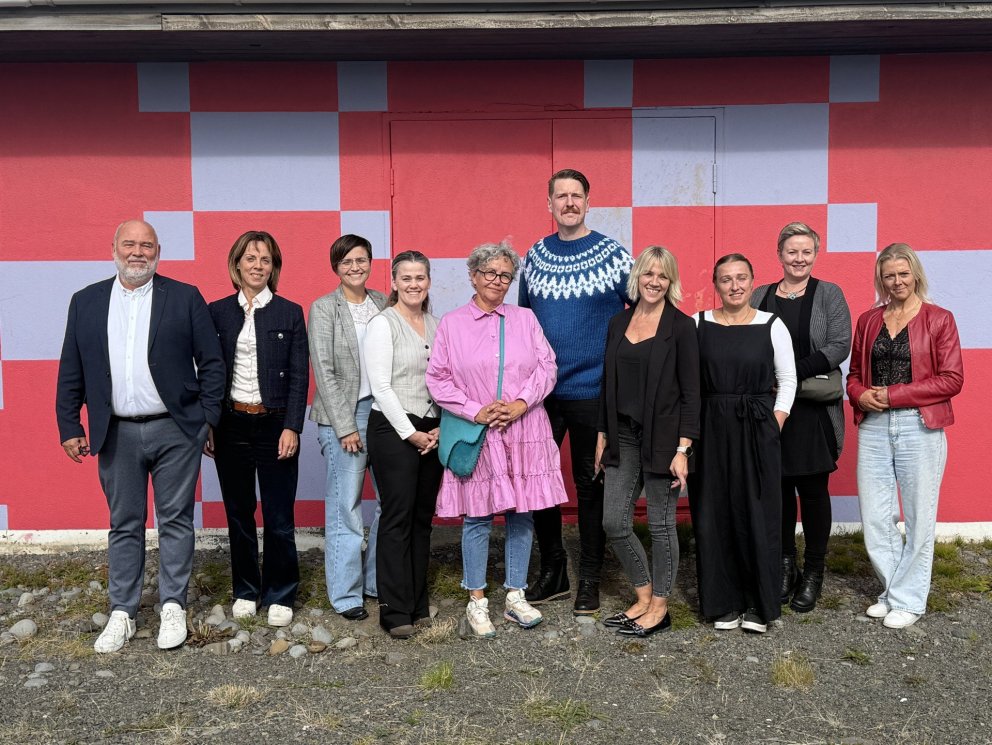
-
August 2025
The report “The Icelandic Textile Cluster – Interdisciplinary Collaboration to Strengthen Textile Production in Iceland” was published. It examines the current state of the textile industry and includes in-depth interviews with 18 potential cluster members, an economic impact analysis, and a diamond analysis based on Michael Porter’s cluster theory.
-
July 2025
The Textile Center hosted a seaweed workshop led by a seaweed expert and a textile artist, to highlight sustainable processes and alternative materials and approaches. The workshop allowed participants to explore seaweed as both a material and a dye through hands-on sessions in the TextileLab. The programme also included a field excursion and concluded with a discussion on the role of seaweed in art, science, and sustainability.
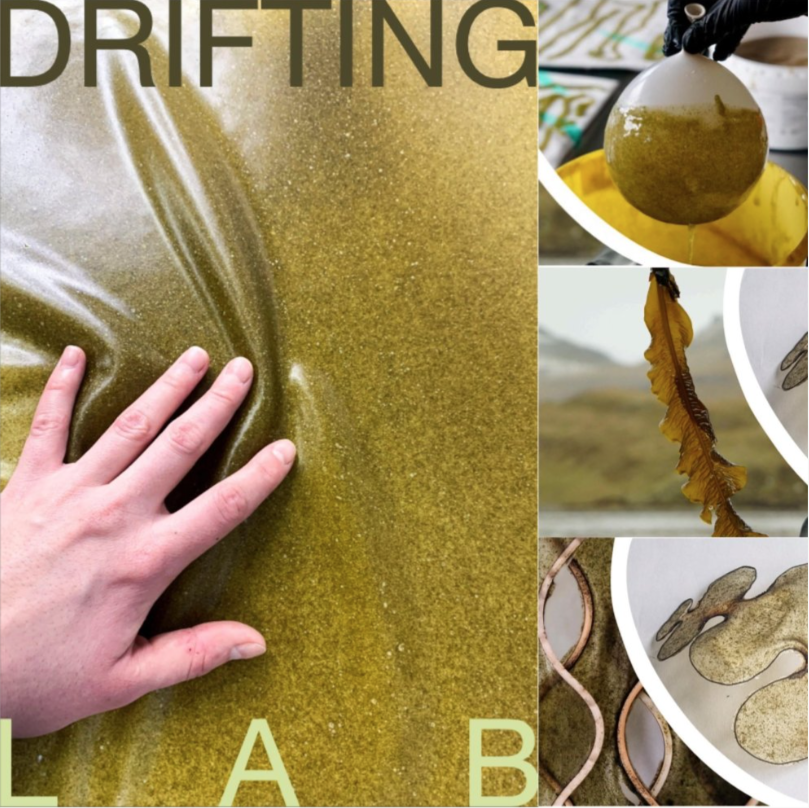
-
March 2025
The Textile Center’s Annual Meeting was held in Blönduós, with part of the programme dedicated to the workshop "Spjörum okkur", which focused on developing creative solutions to the growing challenge of textile waste. Participants explored four key areas: education, recycling, waste collection, and business models. The insights generated were compiled by the Association of Municipalities in Northwest Iceland (SSNV) and published as a report. Participants emphasized the relevance of traditional craft knowledge in addressing textile waste.
